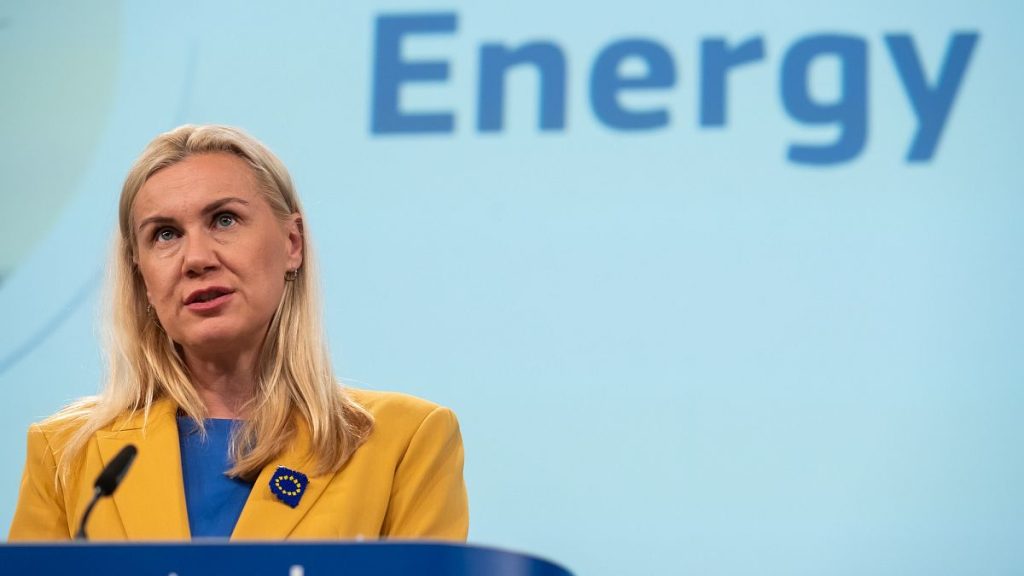The annual State of the EU Energy Union report reveals that Europe continues to rely heavily on Russia for nearly a fifth of its gas imports, despite a significant decrease in supply since the Kremlin’s aggression towards Ukraine. Energy Commissioner Kadri Simson emphasized the need to phase out Russian gas while ensuring energy security for the EU. The report acknowledges that although the consumption of Russian gas has decreased, the country still supplies 18% of gas imports, making it Europe’s second largest supplier after Norway. Simson reassured that the EU has alternative supply routes in place for when the transit agreement between Gazprom and Ukraine expires at the end of the year.
Simson highlighted that Russia no longer holds leverage over the EU due to its reduced gas supply, stating that the EU has ample alternatives available. Europe’s gas stores are full, and the Commission has prepared for the end of the transit agreement by finding alternative supply routes. Simson urged companies still receiving Russian gas to opt for more predictable alternatives and encouraged governments to utilize tools that enable unilateral bans on Russian LNG imports. The report underscores the EU’s commitment to phasing out Russian gas and ensuring that redirected gas from other routes does not benefit Russia economically.
The State of the EU Energy Union report also addresses concerns about the pace of Europe’s energy transition towards renewable sources. Energy Commissioner Simson stressed the need to accelerate the deployment of wind turbines, solar arrays, and other renewable infrastructure to meet the EU’s green energy target of 42.5% by 2030. While wind and solar have surpassed fossil fuels in the bloc’s electricity generation mix, some countries, like France, have not yet met their 2020 renewable energy targets. The Commission is engaged in dialogue with Paris on this issue and supports the use of power purchase agreements and state-backed contracts to expedite the transition.
Despite progress in the energy transition, the European Environmental Bureau has called for increased efforts to implement energy saving measures, promote renewable energy, and accelerate electrification. The report’s release serves as a reminder to the Commission and EU member states to take action and establish task forces to assess progress on key energy goals. The report echoes the need for a stronger commitment to sustainability and innovation in the energy sector to ensure Europe’s energy security and meet its renewable energy targets. The EU must prioritize the deployment of renewable energy infrastructure and work towards a cleaner and more sustainable energy future.













